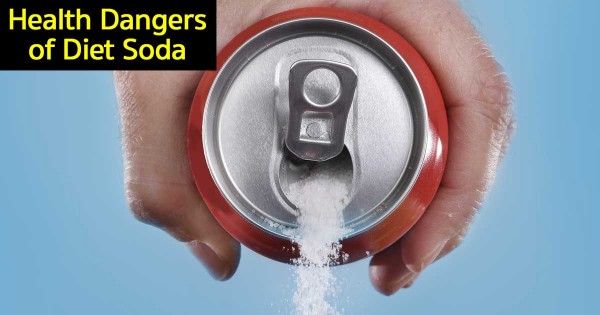Health Dangers of Diet Soda: Addiction and Aspartame

Make sure to like Living Green and Frugally on Facebook, Shop at amazon to help support my site and explore our PINTEREST BOARDS for innovative ways you can become self-sufficient.
In the modern quest for healthier alternatives, diet soda has long been marketed as a guilt-free option for those looking to satisfy their cravings without the added sugar and calories of regular soda. However, beneath its seemingly innocuous facade lies a slew of health dangers that warrant closer examination. From fostering addiction to its controversial ingredient aspartame, the consumption of diet soda poses significant risks to both physical and mental well-being.
Diet Soda: A Sweetened Trap
Diet soda’s allure is undeniable. It offers the tantalizing promise of sweetness without the caloric consequences, making it an enticing choice for weight-conscious individuals and those managing diabetes. Yet, this seemingly harmless beverage harbors a dark side: addiction.
Research suggests that the artificial sweeteners found in diet sodas, such as aspartame and sucralose, can hijack the brain’s reward system, leading to cravings and dependency akin to those associated with traditional sugary drinks. The intense sweetness of these additives can desensitize taste receptors, prompting individuals to seek out increasingly sweet foods and beverages to achieve the same level of satisfaction. This perpetual cycle of craving and consumption can contribute to overeating, weight gain, and metabolic disorders, undermining the very goals that drove individuals to choose diet soda in the first place.
Aspartame: Friend or Foe?
At the heart of the controversy surrounding diet soda lies aspartame, one of the most widely used artificial sweeteners in the world. While regulatory agencies such as the U.S. Food and Drug Administration (FDA) have deemed aspartame safe for consumption, concerns persist regarding its potential health effects.
Some studies have linked aspartame consumption to a myriad of health issues, including headaches, dizziness, and gastrointestinal disturbances. Furthermore, research suggests that aspartame may pose particular risks to individuals with phenylketonuria (PKU), a rare genetic disorder that impairs the body’s ability to metabolize phenylalanine, a component of aspartame.
Moreover, debates surrounding the long-term effects of aspartame consumption persist, with some research suggesting potential links to cancer and neurological disorders. While conclusive evidence remains elusive, the mere presence of these concerns underscores the need for caution when consuming products containing this controversial sweetener.
Navigating Towards Healthier Alternatives
In light of the health dangers posed by diet soda, individuals are encouraged to explore healthier beverage options that prioritize natural ingredients and minimal processing. Water remains the ultimate hydrator, offering refreshment without any added sugars, artificial sweeteners, or calories. Additionally, herbal teas, infused water, and homemade fruit juices provide flavorful alternatives that can satisfy cravings without compromising health.
For those seeking a carbonated fix, sparkling water infused with natural flavors offers a satisfying fizz without the drawbacks of traditional soda. With an array of options available, from citrus-infused blends to herbal concoctions, there’s no shortage of ways to indulge in a guilt-free beverage experience.
Conclusion
While diet soda may present itself as a tempting solution to the pitfalls of sugary beverages, its health dangers should not be underestimated. From fostering addiction to its controversial ingredient aspartame, the consumption of diet soda carries inherent risks that warrant careful consideration.
By prioritizing whole, minimally processed foods and beverages, individuals can safeguard their health and well-being while satisfying their cravings in a more nourishing manner. Ultimately, the path to optimal health lies in making informed choices that prioritize balance, moderation, and the consumption of foods and beverages that nourish the body and mind alike.